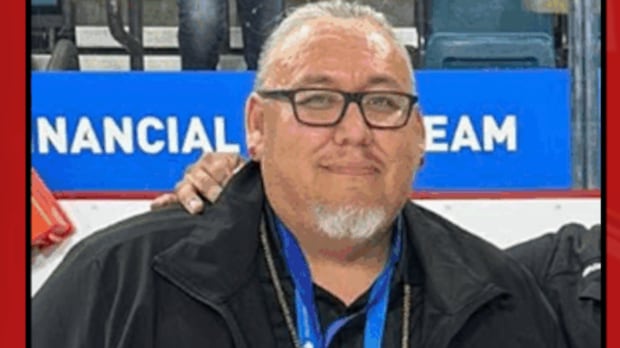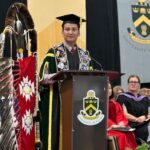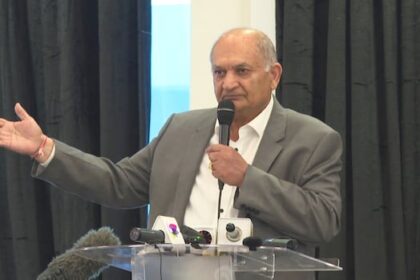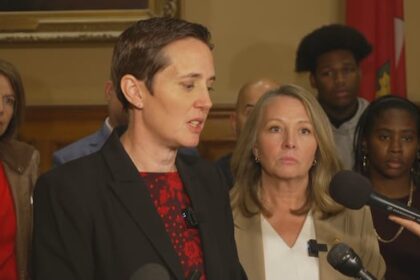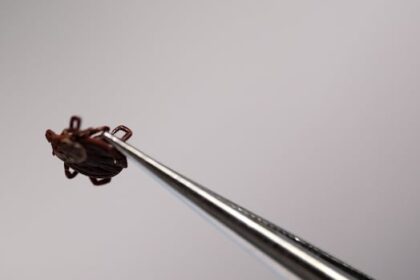ManitobaKevin Monkman will never forget the racism he experienced growing up as a youth hockey player just trying to enjoy playing the game he loved. Monkman is one of three Manitobans who will sit on Hockey Canada’s first Indigenous Advisory Circle, which will work to combat anti-Indigenous racism in hockey, and promote inclusivity within the game. Circle will look to combat anti-Indigenous racism and promote inclusivity in hockey Dave Baxter · CBC News · Posted: Nov 11, 2025 11:38 PM EST | Last Updated: November 12Listen to this articleEstimated 4 minutesThe audio version of this article is generated by text-to-speech, a technology based on artificial intelligence.Kevin Monkman, who says he experienced racism in hockey growing up is one of three Manitobans chosen to sit on Hockey Canada’s first Indigenous Advisory Circle. (Submitted by Waywayseecappo Wolverines)Kevin Monkman will never forget the racism he experienced growing up as a youth hockey player just trying to enjoy playing the game he loved. “Getting spit on by adults at games not knowing why, becoming a coach and seeing those same things happen,” Monkman said while relaying some of the experiences he has dealt with in his time playing, coaching and managing hockey. “We managed to overcome that, but it still resonates in my blood the racism we experienced.”Monkman is the assistant general manager of the Waywayseecappo Wolverines of the Manitoba Junior Hockey League, and the manager of the the Peguis Junior B hockey club in the Keystone Junior Hockey League. He will now take on another important role, as Monkman will join Birdtail Sioux Dakota Nation Chief Trechelle Bunn and Breanne Dondo of the Red River Métis Nation as the three Manitobans who will sit on Hockey Canada’s first Indigenous Advisory Circle, which will work to combat anti-Indigenous racism in hockey, and promote inclusivity within the game. Monkman said over the last few years there has been a decline in the number of Indigenous hockey players playing in Manitoba, and he believes some of that is tied to Indigenous players not always feeling welcome on teams, or in some Manitoba hockey rinks.“Has it changed? I would like to say it’s changed but it hasn’t, it might have gotten better but I think it’s still there,” he said. “Years and years later it’s there and that’s why I talk about education, not just for coaches or for players, but for everybody.”The 11-person advisory circle, according to Hockey Canada, will inform organizational policies and practices related to the Truth and Reconciliation Commission’s Calls to Action “that will advance Hockey Canada’s work with Indigenous peoples.”While the racism he sees in hockey is a factor in some Indigenous kids not wanting to play, Monkman also emphasized the cost of hockey is keeping Indigenous youth out of the sport as well. “It’s an expensive sport from when I was playing to now, with the price of my son’s equipment and even booking ice,” he said. “It’s changing times where everything is getting a little more expensive, and if we can find ways to lower costs and educate people it would bring back some more players.”Birdtail Sioux Dakota Nation Chief Trechelle Bunn, who played competitive hockey throughout much of her youth, says she believes her lived experience as a player will help her to do her work on Hockey Canada’s first Indigenous Advisory Circle. (Ian Froese/CBC)Bunn, who played competitive hockey throughout much of her youth, says she believes her lived experience as a player will help her to do her work on the new advisory circle, and said she continues to hear accounts of anti-Indigenous racism at all levels of hockey. “I think every year you come across different news stories and different individual people sharing their stories about all the barriers that Indigenous peoples and communities are facing when it comes to hockey,” Bunn said. “As a hockey player growing up and facing racism on teams, sometimes as the only Indigenous player, I think Hockey Canada is really leading the way in how to make Canada’s game more inclusive.”In August 2023, Hockey Canada published its first Equity, Diversity and Inclusion Path Forward, which included a commitment to work towards “long-term, sustainable change within hockey, as well as actions that relate to respecting, protecting and promoting the rights and opportunities of Indigenous Peoples through sport.”Sagkeeng First Nation Chief E.J. Fontaine is not one of the members of the advisory circle, but said he will be following the work and progress of the group, as he continues to see the effects of racism in hockey. Sagkeeng First Nation Chief E.J. Fontaine says he continues to see the effects of racism in hockey and believes it is leading to fewer Indigenous youth wanting to play the game competitively. Ian Froese/CBC (CBC)“It creates a feeling of not belonging, but it also creates a feeling of parents and children not wanting to participate in hockey,” Fontaine said. “Communities need to know that there’s serious efforts being taken to combat long outstanding racism and abuse in hockey“And the kids need to know and the parents need to know that help is on its way for combating those types of ugly incidents, but also to prevent further incidents.”ABOUT THE AUTHORDave Baxter is an award-winning reporter and editor currently working for CBC Manitoba. Born and raised in Winnipeg, he has also previously reported for the Winnipeg Sun and the Winnipeg Free Press, as well as several rural Manitoba publications.With files from Ian Froese and Marjorie Dowhos
Wednesday, 4 Mar 2026
Canada – The Illusion
Search
Have an existing account?
Sign In
© 2022 Foxiz News Network. Ruby Design Company. All Rights Reserved.
You May also Like
- More News:
- history
- Standing Bear Network
- John Gonzalez
- ᐊᔭᐦᑊ ayahp — It happened
- Creation
- Beneath the Water
- Olympic gold medal
- Jim Thorpe
- type O blood
- the bringer of life
- Raven
- Wás’agi
- NoiseCat
- 'Sugarcane'
- The rivers still sing
- ᑲᓂᐸᐏᐟ ᒪᐢᑿ
- ᐅᑳᐤ okâw — We remember
- ᐊᓂᓈᐯᐃᐧᐣ aninâpêwin — Truth
- This is what it means to be human.
- Nokoma


